A subject we tried to avoid in our blogs are orca’s. These beautiful animals have become the fear of many sailors and main subject of discussion. Since about 3 years the orca’s on the Spanish and Portuguese coast have developed a habit of biting off the rudders of sailboats. It started with a few instances, but the behaviour has spread among the orca’s and now the whole coast from as north as Brest to as south as Gibraltar suffer from it. Many boats lost their rudder blade and had to be towed to a harbour, but for some less fortunate the whole rudder was torn with 2 cases of boats sinking. There is very little scientific knowledge on why they do it and how to avoid it, so a nice subject for speculations.
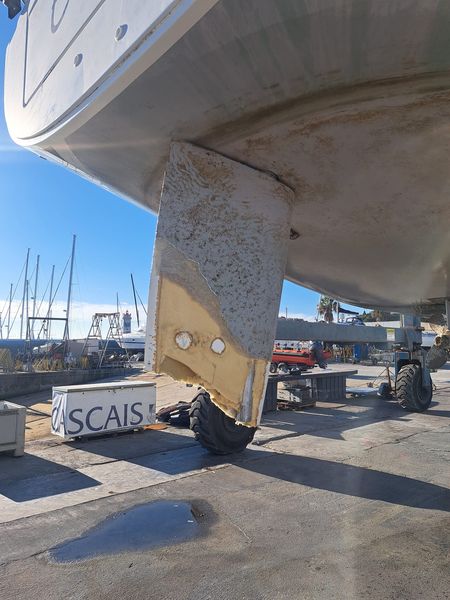
The authorities are being blamed for not doing anything (tagging them with gps?) and just collecting data on the cost of sailors. One of the last attacks was on the boat of sir Robin Knox Johnston, the first solo sailor non-stop around the world. He is still sailing at 84 years old. As now one of the most famous sailors of this time has also been attacked, the pressure on authorities is rising.
What is the reason of this behaviour? The most common theory is this: when the adults go hunting, the youngsters stay on the surface and practice hunting with sailboats. The hunting technique is biting the tail (rudder) of the fish before catching it. The reason of choosing sailing boats is the lack of spinning propellors and the weakness of spade rudders. Another theory argues that their prey stays in these waters due to the warming up of the sea, rather than going further into the Atlantic. But there are many other theories.
So what can we do about it? The first option is changing our plans. Many sailors going to the Mediterranean have altered their route and head for the Canary islands or go back north all together. Most sailors do not sail at night anymore as a salvage is much more difficult in the dark. If you still want to go to the Med (like we do) collecting information on the last attacks (or interactions as they are officially called) is what you do. The last month the Orca interactions were south of Lisbon, hence we could quite safely go to Lisbon and will stay there for Christmas. In some WhatsApp groups we also share safe passages to have an idea on where it is safe to sail. But just a few days ago there was an interaction at the place we recently passed. Not strange if you know that and Orca can swim at about 60 km per hour (and a sailboat only 10-15).
The orca locations are being tracked at: https://www.google.com/maps/d/u/0/viewer?mid=1TuS2ecQ8StrKfDbk0XkT7FpjuFUC7yU&ll=37.09258276120418%2C-11.140347222222212&z=5
The next issue is what to do in case of an interaction. This is a tricky subject as these animals are protected and may not be harmed in any way on the risk of high penalties and beyond. Here the speculation on what works is getting really interesting with some very far fetched theories. The most common and allowed actions are disconnecting your autopilot (so the rudder can move freely), start your engine and go backward in circles. The theory is that this will not look like a fish ‘on the run’ and the propellors are somehow protecting the rudder. Another allowed action is throwing sand in the water (we have a bucket standing ready) which orca’s supposingly do not like. Finally making sound underwater is also allowed (horn, banging on metal pipes, pans, ultrasonic).
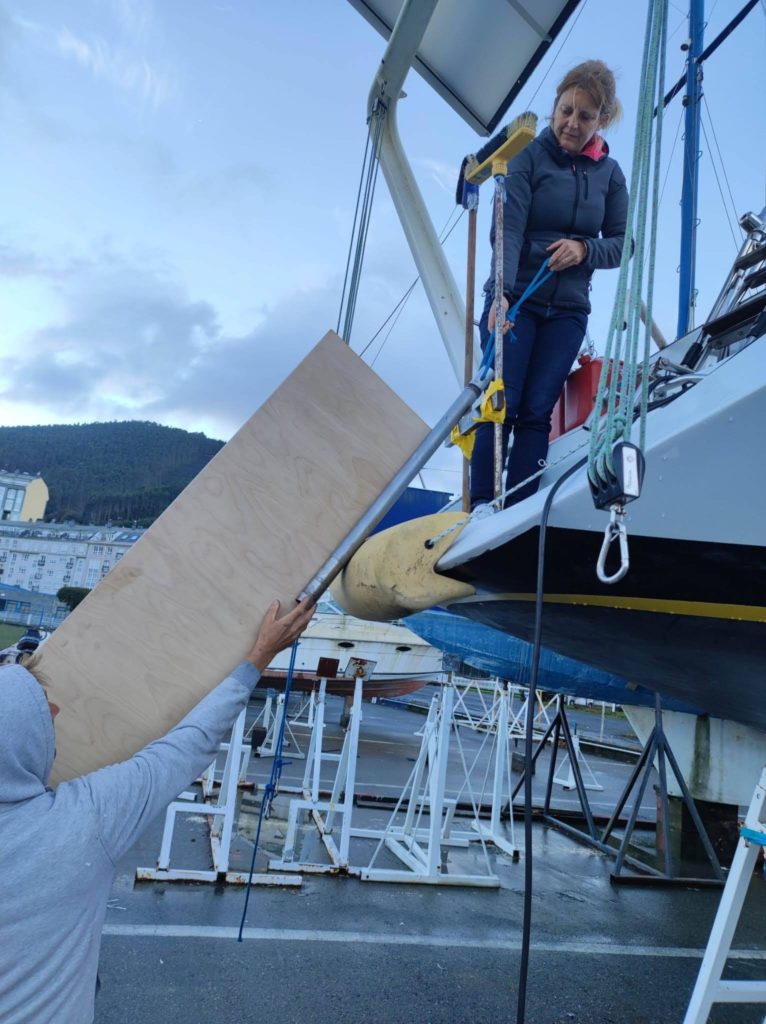
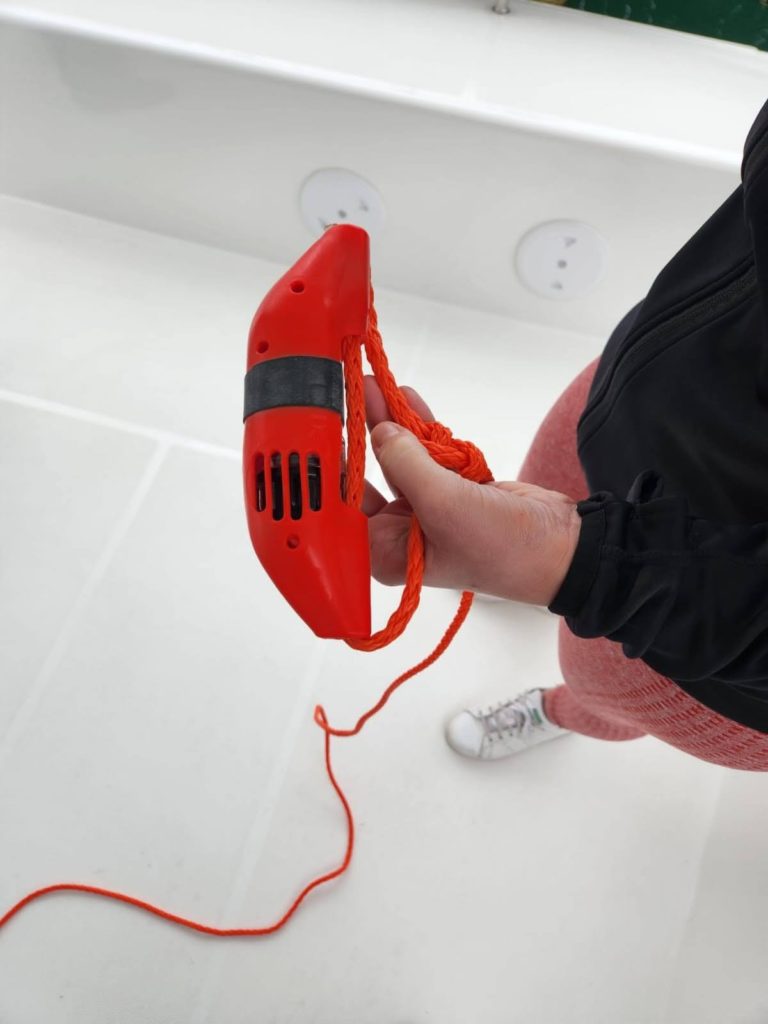
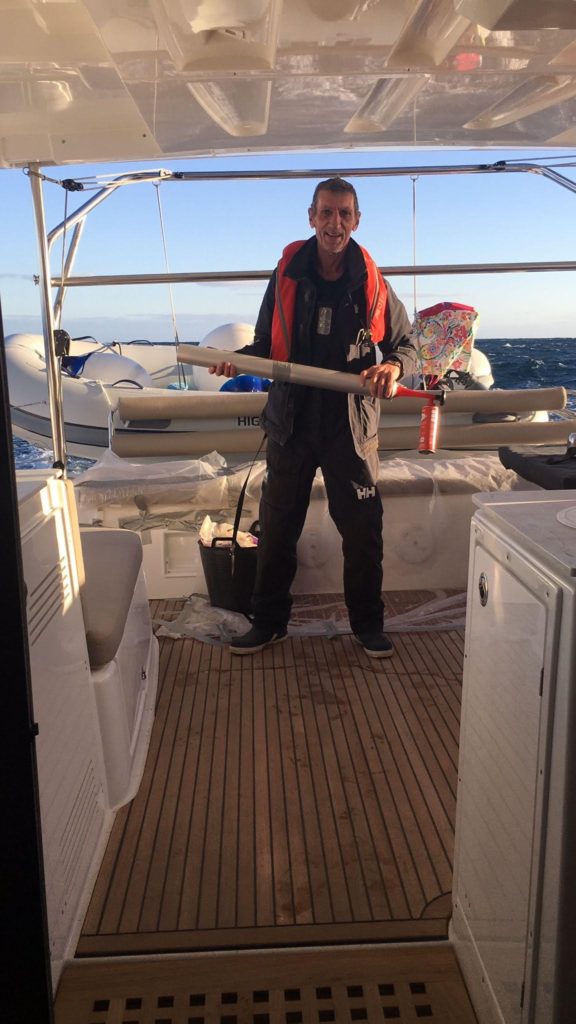
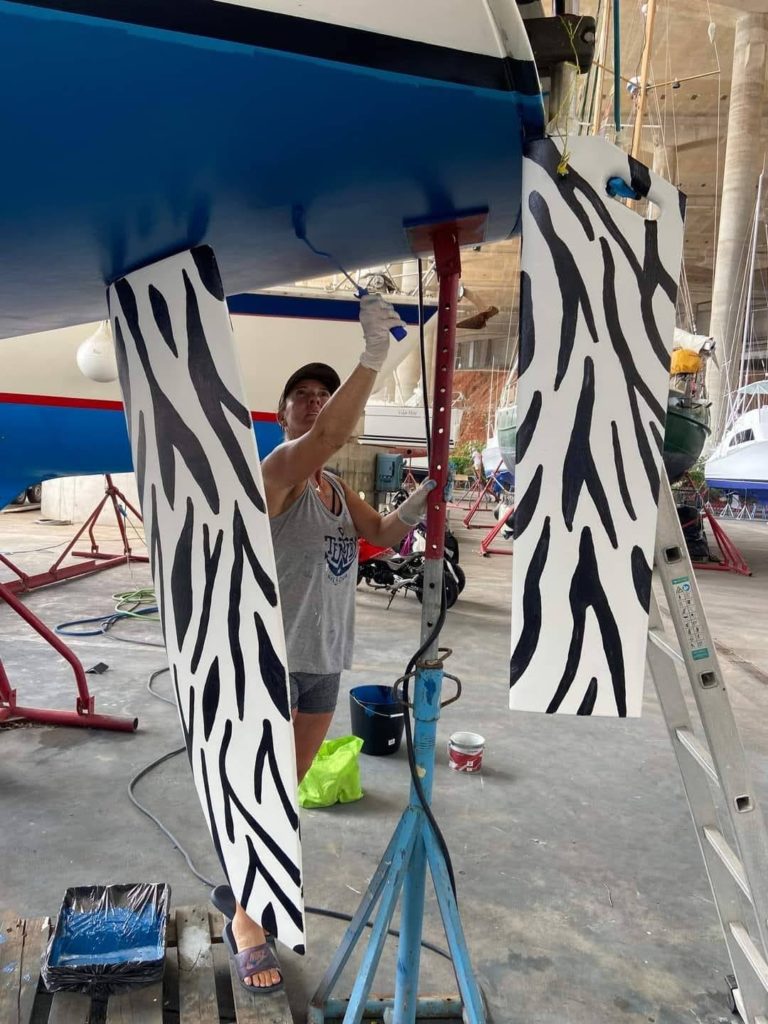
Most other methods we have seen in discussions are not allowed or are very inconvenient. But one can imagine the possible countermeasures of the sailors where their safety is threatened by these attacks.
So what does this mean for us? Knowing that the many interactions have not lead to any personal casualties we continue our journey. As we now are sailing already for more than a month in these waters we get a bit more relaxed, but minimize the risks by not sailing in the dark and staying in shallow waters along the coast where there are less interactions and a salvage can be arranged easier. We are now staying in Lisbon until the new year and keep a watch on the location of the interactions. Based on this we will adapt our plan, change the timing of the legs we have to sail, or change the route.
Goede morgen Jos,
Dat klinkt best wel heftig met de orca’s.
Ik begrijp je zorg.
Hier in Delft alles rustig. Sinterklaas net uitgezwaaid, nu voorbereiden van de Kerst.
Wie komen er allemaal eten met Kerst en wat gaan we op tafel zetten?
Vandaag bijeenkomst in de Schaapskooi voor de laatste keer.
We gaan verhuizen naar Molen de Roos.
Ontmoeting vandaag met oud leden.
Verder veel aandacht voor Nederlands elftal in Qatar, dat de VS wist te verslaan.
Op de achtergrond woedt de oorlog in Oekraine.
Zorgen ook hier dus.
Doe voorzichtig, geniet van jullie avontuur.
Groet,
Sjef
Dankjewel Sjef, eind volgende week komen we weer even naar Nederland.
Best wel heftig Jos,
Op filmpjes zie je die beesten meestal rustig met boten meevaren en zo, maar het roer afbijten is wel even wat anders, zeker als daarbij de boot lek raakt.
Goed opletten dus maar en houd het roer recht!
Dag Tim, We zijn niet in paniek, maar letten inderdaad wel goed op.